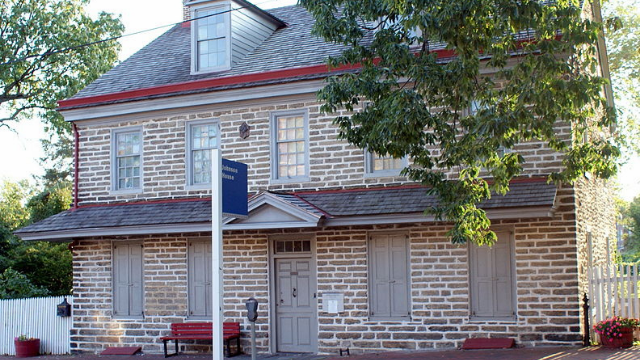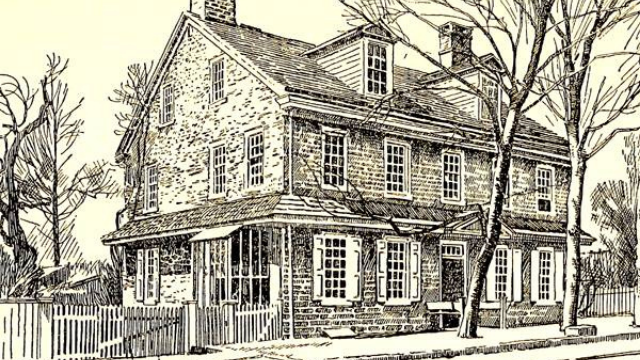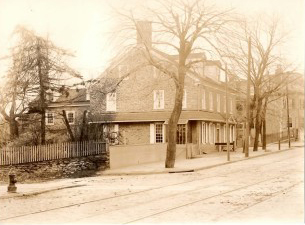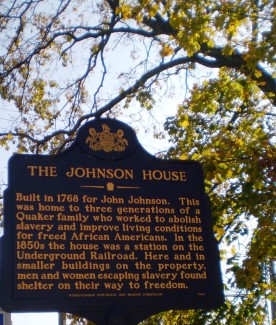
The Johnson House is Philadelphia’s only documented, accessible, and intact Germantown stop on the Underground Railroad. It is open to the public as a place of historic importance. Johnson House was built in 1768 and owned by a family of Quaker abolitionists who worked with free and enslaved people to secure a safe passage to freedom for numerous African Americans.
The Underground Railroad
The Underground Railroad was an informal anti-slavery network that helped people escape and find freedom in Canada or free states in the United States. The 1793 Fugitive Slave act sparked deeper engagement by Quakers and abolitionists, and routes in the network were mapped across various modes of transportation on rivers, canals, Atlantic Coastal waters, roads, footpaths and trails.
Many Quakers like Thomas Garrett, Levi Coffin, Isaac Hopper, and the Johnson family of Germantown were actively involved in this movement.
Harriet Tubman was among many prominent people involved in the network and it’s believed she visited Johnson house. After her own escape from Maryland enslavers, she returned to guide other enslaved people out of the state and into Pennsylvania. Tubman also regularly transitioned groups of freedom seekers to Canada when live in PA became too dangerous.
In many ways Pennsylvania was essential to the Underground Railroad. It was the first state in North America to abolish slavery, and it held important stops in the Pennsylvania network, like the F. Julius Le Moyne House in Washington, PA; the Johnson House in Germantown; Mother Bethel African Methodist Episcopal (AME) Church in Philadelphia.
Johnson House’s History

The 18th century saw a large influx of immigrants in Pennsylvania, and between 1727 to 1775, around 60,000 Germans settled in the state. With so many people arriving and purchasing lots in different neighborhoods, Germantown witnessed a surge in land development. People initially rented homes (as they were indentured laborers) and rental properties began to expand into Germantown’s side streets off Main Street.
At this moment in time, John Johnson, a member of Germantown Preparative Meeting, built Johnson house. It was a wedding present for his son John and his new wife, Rachel Livezey. A prosperous tanner and a farmer, John, Sr., owned extensive land in the area and was among the wealthier families in Germantown.
 The House was constructed in 1768 and was one of the larger homes in Philadelphia. The house is located at the intersection of Germantown Ave, and Washington Lane (at the time these were Main Street and Abington Road) and was built in the Colonial Georgian style. The house is of local stone with Dutch doors, and remains standing to this day.
The House was constructed in 1768 and was one of the larger homes in Philadelphia. The house is located at the intersection of Germantown Ave, and Washington Lane (at the time these were Main Street and Abington Road) and was built in the Colonial Georgian style. The house is of local stone with Dutch doors, and remains standing to this day.
Johnson House was home to three generations of the family, all of whom were against slavery and worked to improve living conditions for freed African Americans by actively supporting the Underground Railroad. The house famously hosted the prominent abolitionists William Still and Harriet Tubman. The Johnson family provided sanctuary, food, clothing, and transportation to untold numbers of African American freedom seekers.
In addition to supporting abolition, the Johnsons were also supporters of the Concord School (located across the street), Germantown’s first English speaking educational institution. John Johnson’s son, Samuel, was a member of the first school board and the first town council in Germantown.
Members of the Johnson family owned the Johnson House until 1908. In 1997, it was dedicated as a National Historic Landmark and is now run by the Johnson House Historic Site, Inc.

Philadelphia offers an historic Underground Railroad tour which includes many historical landmarks like Liberty Bell Center, President’s House, St. George’s Methodist Church, Historic Fair Hill, and Johnson House.
Resources: